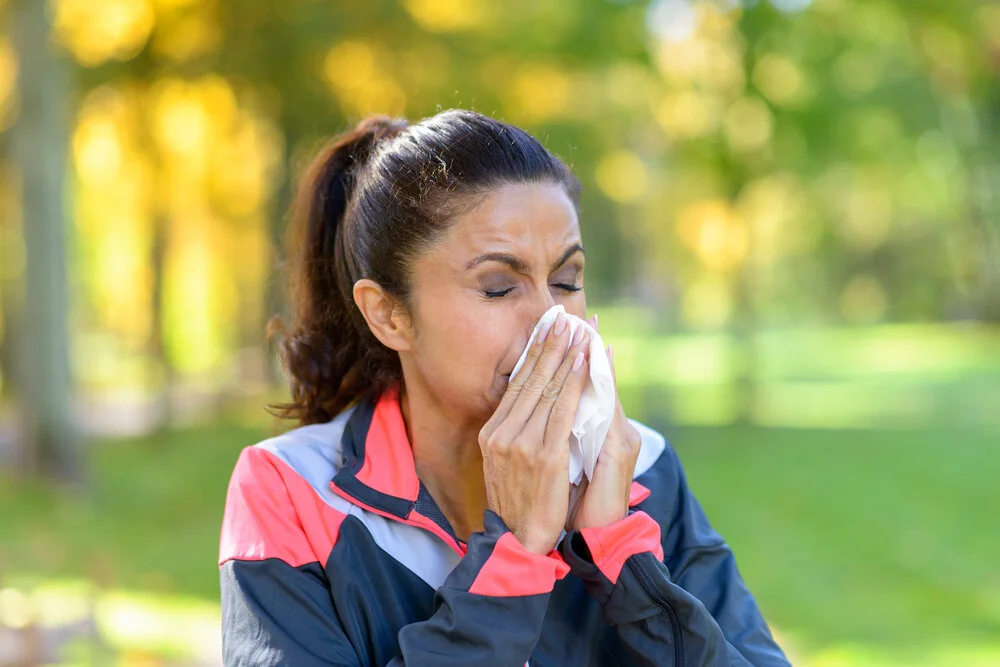Allergy and Workout – What You Need to Know
You're sneezing and coughing and you're driving insane with itchy, watery eyes. You feel worn out and miserable, but you don't have any flu or cold. You're allergic. You're getting sick with allergy symptoms— so should you crawl back into bed and just call it a day or just a soldier on your tissue box? Is it a good plan to get extra rest, as you do with a cold or flu? What's a heavy exercise going on? How do the rules alter when an allergy occurs? Visit your nearest allergy and asthma clinic in Oklahoma for treatment.
Pollen on rainy, cloudy, or windless days is less serious because pollen needs to move around in the air to get into our noses, eyes, and airways. Your allergies may increase on hot, dry, and windy days, so these are the days you may not want to work out outside. Naturally, pollen counts may vary from one hour to the next. The best times of the day for low pollen counts— are usually before dawn and in the late afternoon until early evening— and therefore work out. If you want to be sure, you can check the pollen count with a quick Google search before heading outdoors. If it's a particularly polluted day, you might want to stay indoors.
Have Bath
When you practice outside, clean your hair at night to remove pollen that got stuck in the hair. In reality, after altering your workout clothes, it's best to take a complete shower to avoid allergy transferring to your sheets. That's why allergy symptoms are notoriously worse at night.
When to See a Doctor at allergy and asthma clinic in Oklahoma
If you just don't find relief — and your workouts get in the manner— it might be time to speak to your physician. If your allergies cause you to suffer, there are so many alternatives out there. Go see a physician and get allergy tests to find out which medicines are correct for you, particularly if you are having trouble breathing. Many specialists suggest taking an over - the-counter antihistamines or nasal spray one hour before your exercise, for instance— but there are eye drops or inhalers, too. Your doctor can assist you plan your symptoms best.
Do’s and Don’ts
Try over-the-counter antihistamines if you have mild symptoms but remain away from the sedating ones.
If your allergy symptoms are caused by grasses or trees or flowers or weeds, will you stop going outside? Ask your specialist about nasal sprays or eye lubricants if over - the-counter allergy treatment does not handle your allergy symptoms.
Symptoms of allergy make it easier to get an infection like an infection with the sinus. If you're rested, your allergy symptoms are less likely to escalate into another type of infection.
Is drinking alcohol can cause an allergy or not?
No, it is not— especially if you're on sedatives for your allergy symptoms. First, you may have a double-sedating effect from the alcohol combined with the antihistamines. Second, alcohol makes allergy-affected tissues red and inflamed, that is a worse condition.
Contact allergy and asthma clinic in Oklahoma for diagnosis and treatment.
**Disclaimer: The information on this page is not intended to be a doctor's advice, nor does it create any form of patient-doctor relationship.

